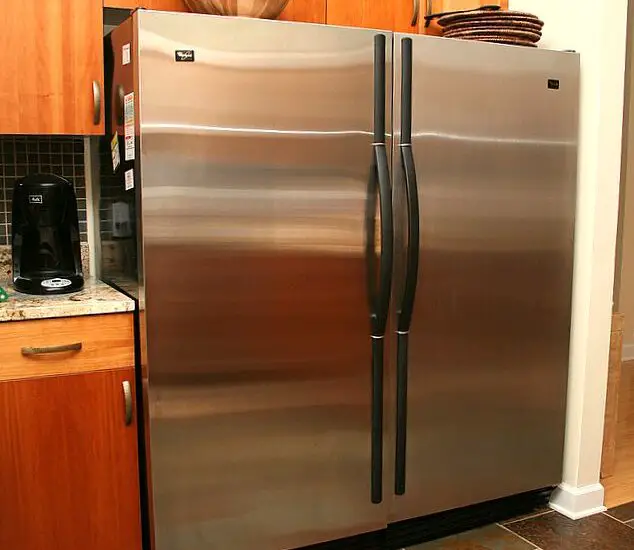This comprehensive guide will walk you through identifying why your fridge smells like freon and resolving the problem, ensuring your fridge stays fresh and safe.

Table of Contents
Understanding Why Your Fridge Smells Like Freon
Freon, a type of refrigerant, is essential for the cooling mechanism of your fridge. Normally, freon is a colorless, tasteless, and nearly odorless gas. The peculiar smell often associated with freon is actually due to the mixture of other chemicals used in the refrigerant or from the oil used in the compressor.
If your fridge starts to emit a strong chemical or ether-like smell, it could indicate a leak. This is not only inefficient for your fridge’s operation but could also lead to health hazards, as prolonged exposure to these chemicals can be harmful. Identifying the source of the smell promptly is crucial to address potential leaks and prevent further issues.
Signs of a Freon Leak
A freon leak in your fridge can manifest through various signs. The most noticeable is the distinct chemical smell. However, there are other indicators to be aware of:
Inconsistent Temperature: Your fridge may not cool efficiently, or the freezer section might not maintain its temperature, causing food to spoil or not freeze properly.
Increased Energy Bills: If the fridge is leaking freon, it has to work harder to cool, leading to higher energy consumption and increased bills.
Hissing Sounds: A subtle hissing sound from the back of the fridge can indicate a freon leak. This sound is caused by gas escaping from a small hole or crack in the refrigeration system.
Visible Signs: In some cases, you may notice oil residue around the fridge’s compressor or refrigeration lines. This residue can be a telltale sign of a leak.
Detecting these signs early is key to addressing the issue before it worsens.
Safety Precautions
Handling a potential freon leak requires caution. Here are some safety tips:
Ventilation: Open windows and doors to ensure good air circulation. Freon gas can be harmful if inhaled in concentrated amounts.
Avoid Direct Contact: Don’t touch any leaking substance without proper protective gear. Exposure to freon can cause skin irritation and other health issues.
Professional Help: If you suspect a significant leak, it’s best to turn off the fridge and contact a professional. Handling refrigerants requires expertise and special equipment.
Remember, safety should always be your first priority when dealing with refrigerants.
Troubleshooting and Repair
Addressing a freon leak involves several steps:
Visual Inspection: Check for any visible damage or leaks around the compressor and refrigeration lines. Look for oil residue, as it can indicate a freon leak.
Seek Professional Assistance: If you can’t find the leak or if the issue persists, it’s time to call a certified technician. They can conduct a thorough inspection using specialized tools like electronic leak detectors, UV dyes, or pressure tests to locate and fix the leak.
Refrigerant Recharge: After repairing any leaks, the technician may need to recharge your fridge with the appropriate amount of freon to restore its cooling efficiency.
Repairing a freon leak is not a typical DIY project and often requires professional intervention.
Preventive Measures
To prevent future freon leaks, regular maintenance is key:
Cleaning: Regularly clean the condenser coils as dirt and debris can cause the fridge to overheat and potentially damage the refrigeration system.
Check Seals: Inspect the door seals for any signs of wear and tear. Damaged seals can cause the fridge to work harder, potentially stressing the refrigeration system.
Avoid Overloading: Keep your fridge adequately filled but not overloaded. An overstuffed fridge can restrict airflow and strain the cooling system.
Professional Inspection: Have your fridge inspected by a professional periodically. They can identify and address potential issues before they turn into major problems.
These preventive measures will not only extend the lifespan of your fridge but also ensure it runs efficiently and safely.